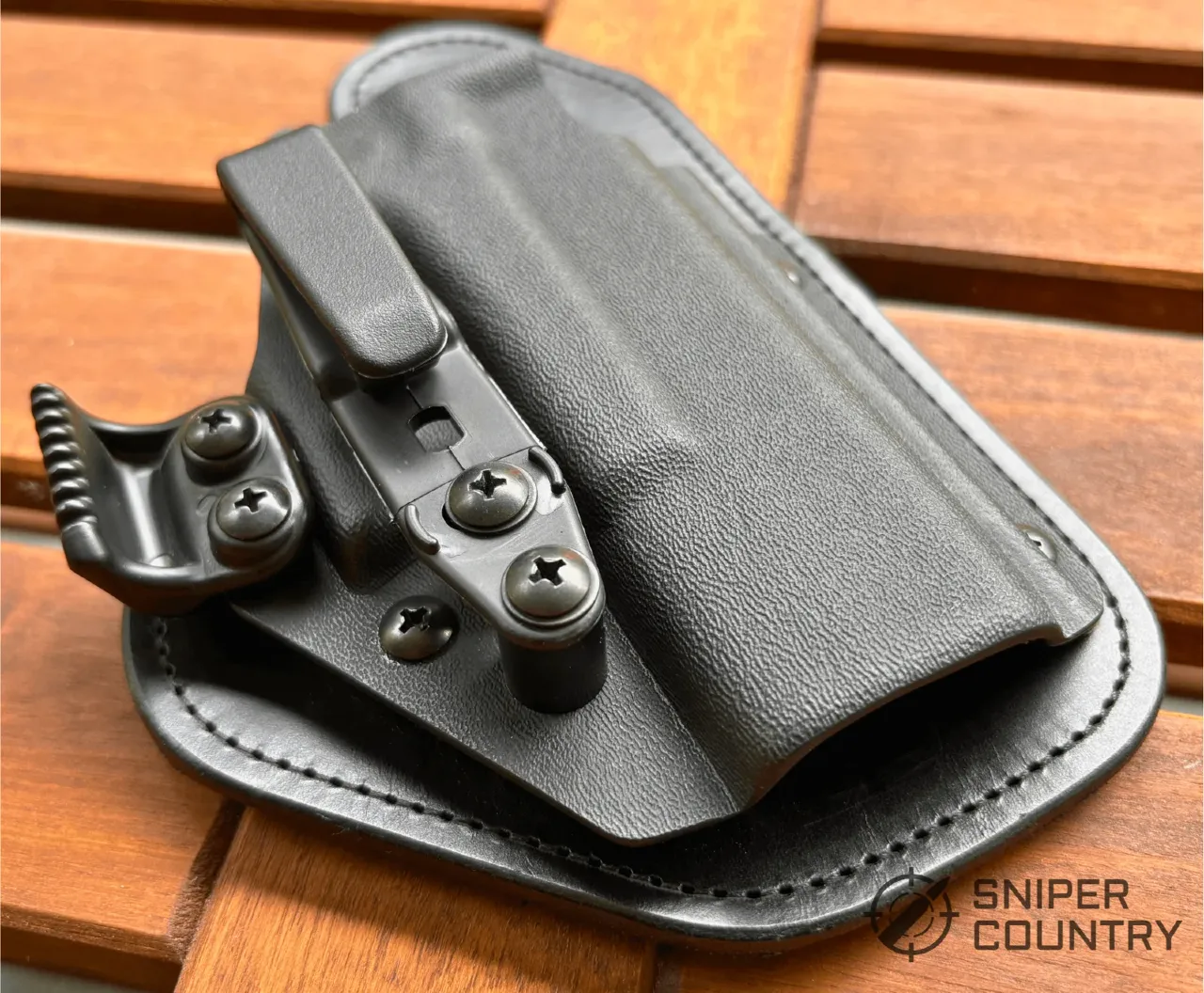Tools, we all love tools, right? Firearms and gunsmiths have a huge range of custom tools, but most of us just need something to help mount scopes and tighten action screws. For those of us that need a simple torque driver that we can rely on, there are two huge names in the industry: Fix It Sticks and Wheeler. But who makes the Best Preset Torque Drivers? Let’s find out!
What Are Torque Drivers?
You might not know it or it might be the ban of your existence, but almost everything that can be screwed down or tightened on something mechanical has a recommended torque rating attached to it.

Torque is, basically, how much force is applied to something rotating around an axis.
The lug nuts on your car likely have a torque of 70-90 foot-pounds.
The screws that attach your scope to your scope mount have a torque rating of around 20 inch-pounds.
All of this said — torque drivers are tools that let you apply a measured amount of torque.
BONUS OFFER: Get your free shooting range targets to print at home!
Get your free targets to print at home!
Best Applications
Generally, screws are something that firearm designers try to use as little as possible. But still, they creep in.
Mounting scopes, lights, barrels, and lots of things are twisted on and secured. The ones you’re going to run into most often are action screws, normally securing a rifle to a chassis or stock, and mounting optics
Both of these normally use inch-pounds of force, do not confuse this with foot-pounds — foot-pounds are literally 12 times as much force.
If your scope says 20 inch-pounds and you go cranking down on it with a Harbor Freight torque wrench rated in foot-pounds you will quickly learn a very expensive lesson.
Both the Fix It Sticks and the Wheeler FAT Stix are inch-pound rated preset torque drivers. Mostly these are built for scopes, scope mounts, scope rings, and action screws. Very common things you’ll need to tighten on a bolt-action rifle.
Fix It Sticks Overview
These come in a huge range of options and sets but basically speaking there are two sets that are ready to go without customization.
The “All-In-One” kit comes with a T-handle, 15 bits, a single torque limiter that can set torque between 15 and 65 inch-pounds, a case, and a 1/2″ Socket. This set runs you about $112.
The other option is “The Works” and costs $280.

You get a set of torque limiters that are preset with a single setting. My set has limiters preset for 15, 25, 45, and 65 inch-pounds.
It also comes with a bunch of extra tools like a 1911 wrench, Glock front sight tool, bush, picks, and more. This “The Works” set also comes with 24 bits instead of 15.
Everything Fix It Sticks makes is well made and fits great in your hands. Based in Chicago, their customer service is awesome and hugely helpful.
The T-handle works at both ends. What I mean is that the long shaft of the “T” has a socket for bits, but the short cross-part of the “T” also has sockets at both ends.
Kind of like how an Allen key can be used in both directions, one giving you reach while the other giving you leverage, so can the Fix It Stick’s T handle.
Popular Articles
Wheeler FAT Stixs Overview
Brand new from Wheeler this is a simple set that costs $99 and comes with just the basics.
5 preset torque bits set at 15, 25, 35, 45, and 65 inch-pounds, 12 bits, a 1/2-inch socket, and an extension bar. Plus, a nice little case.

While this uses a slightly different design than the Fix It Sticks, they are basically the same thing in how they work.
Something I like is that the T-driver is very compact making for an overall smaller tool to use when working. If you need more range, the extension bar is there to give it.
The downside is that you can only use it in one direction, there is no Allen Key effect with the FAT Stix.
Fix It Vs. Wheeler
Bottom line is that these tools do the same thing, basically. Both help you mount scopes and accessories securely and safely.
Fix It Sticks have been out for a while and have built a huge following. They’ve also won contracts to be the official tool for the M110A1 DMR program and for the new Barrett MRAD rifle system.
Getting to that level of acceptance is a huge task and puts proof behind their name.
Wheeler has been around a long, long time and almost every gun owner has at least something made by them. Half my tool room is Wheeler from my files to my punches to some oddball stuff like grease and lapping compound.
When it comes to gunsmithing tools that you can afford, Wheeler is basically the name for it.
They’ve also been in the torque business a long time, the FAT Wrenches are old names in the industry that are trusted by thousands of us hobbyists and gunsmiths alike.
Putting Them To The Test
Wheeler bits are short and stumpy, the T-handle feels a bit misshapen in your hand but is grippy and that helps a lot. Torquing screws is as easy as you would expect.
All torque drivers need a way of telling you you’re done, that you’ve reached the torque you want.
The FAT Stix has a great slipping mechanism that gives you a very loud CLUNK as it slips past the torque value. This makes it REALLY hard for you to over-torque something. Give it a good crank, let it go CLUNK, and you’re done.

Fix It Sticks come in the two flavors I mentioned before. My version, the expensive one, uses preset torque bits like the FAT Stixs do but mine have a MUCH softer “click” as they pass the assigned torque value.
It gives a little bit of a feel and a small sound, but it’s pretty easy to miss both unless you’re paying attention.
That said, the slip of the driver does a good job of preventing over-torquing, even if you don’t notice.

The other version, the all-in-one driver from Fix It Sticks, doesn’t provide a feel or a sound. Instead of having a built-in slip that tells you when you’re at torque and helps prevent over-torquing, the all-in-one has a simple springloaded system that shows you what torque you’re at.
Line the hashmark up with the torque you want and you’re done. This is easy, simple, and reliable, but it has zero over-torque protections.

A Case For Cases
Okay I know that comparing two products cases isn’t super common, but in this case it actually matters. Since both of these torque drivers are pretty close in features, the case helps push things over.
Wheeler’s case is really well made and offers a LOT of protection for the FAT Stixs, I really dig that. But because they use molded and cut high-density foam, there is basically no room for anything else in the case.

Fix It Stick’s case is softer, more open, and provides less hard protection. Personally, this hasn’t been a problem and it has always kept things safe and secure.
The big difference is that Fix It Stick’s open design lets me add things to the case. For instance, I keep a small flashlight, an 80inch-pound Fix It Stick bit that I bought for my MRDx barrel screws, and a universal hex head adapter to fit odd-sized anythings I need to screw down.

All of it fits nicely in the case with my Fix It sticks.
For Wheeler’s FAT Stix… I really don’t have many options since the case is so naturally full. It has a small area to fit something, but I would likely have to pick one item instead of 3 + room for more.
BONUS OFFER: Get your free shooting range targets to print at home!
Get your free targets to print at home!
Warranties
I really feel that both brands fall flat in this area. For something like torque drivers that are expected to take some abuse, the warranty leaves you in the cold.
Fix It Sticks warranty only covers the product for 2 years or less (1 year for torque limiting parts). Even while under warranty the wording of the warranty basically gives them cover to choose to not cover anything they don’t feel like covering.
Something that stands out to me in Fix It Stick’s wording is here:
“If, in Seller’s sole judgment, the Product returned by buyer is not defective or for some other reason is not covered under this limited warranty, buyer shall pay Seller the cost of returning the Product to buyer.”
Basically, if you return something and Fix It Sticks decides that it isn’t covered by their warranty, you have to pay for the shipping to get it back. To me, that feels like theft or extortion. Either way, it sucks. Warranties shouldn’t include a clause about taking the product you paid for hostage.
Wheeler’s Warranty
Wheeler’s warranty is a little better, but not enough to make a huge difference.
While the warranty is “lifetime” Wheeler actually defines “lifetime” as basically whatever they say it is. Read it here:
“The life of the Covered Product means the life of the materials and components of the product.”
“…all materials and components eventually wear out with use and exposure over time.”
“A Covered Product’s life is therefore measured by how much use it gets and how well it is cared for — not its overall age.”
This means that Wheeler gets to determine after you try to claim a warranty, whether or not the product is within its “lifetime”. They give no definitions as to what “lifetime” should mean, just that they will tell you if your tool is within its “lifetime” when it breaks.
I guess in their defense, Wheeler doesn’t threaten to take your tools hostage when you send them in.
The Winner Is…
While that whole warranty thing leaves a real bad taste in my mouth, Fix It Sticks makes a great product that has stood up to hard use and I trust it.
For basically the same price as the FAT Stix, Fix It Sticks gives you more tools, a better case, and a better T-handle.

I like the compact nature of the FAT Stix’s handle, but the reversibility of the Fix It Stick’s version is more useful than being purely compact.
Plus, if you want to upgrade Fix It Sticks has a ratcheting T-handle they sell for about $40. I don’t have one, but I want one.
That said, I really love Wheeler’s more CLUNK design for their torque limits. Honestly, if this is a feature that you like – get the FAT Stix. You won’t be disappointed in Wheeler’s torque drivers and the real heavy CLUNK is great to hear.
Wrapping Up
All in all, do you really need either of these? Maybe, maybe not. If you shoot competitively these are a really nice piece of kit to keep in your range bag.
I’ve had to mount or dismount or change things at a match too many times and being able to break these out and trust them really helps.
If you’ve ever been at a match and had something go horribly wrong with your rifle or scope, you know the value of having tools with you instead of hoping that someone close by does or worst yet, having to pack up and go home.
For the average gun owner that doesn’t shoot competitively, maybe there won’t be enough value to be worth it. But even if you just go to the range once or twice a month, I think having a good toolset with you will pay for itself in the long run.
Need help finding the right scope mount? Try these on for size: How To Choose A Scope Mount.
Don’t forget a new scope to go with it! Also, want to know which AR-15 you should get next?
And you might also want to read about the best AR-15 tool kits

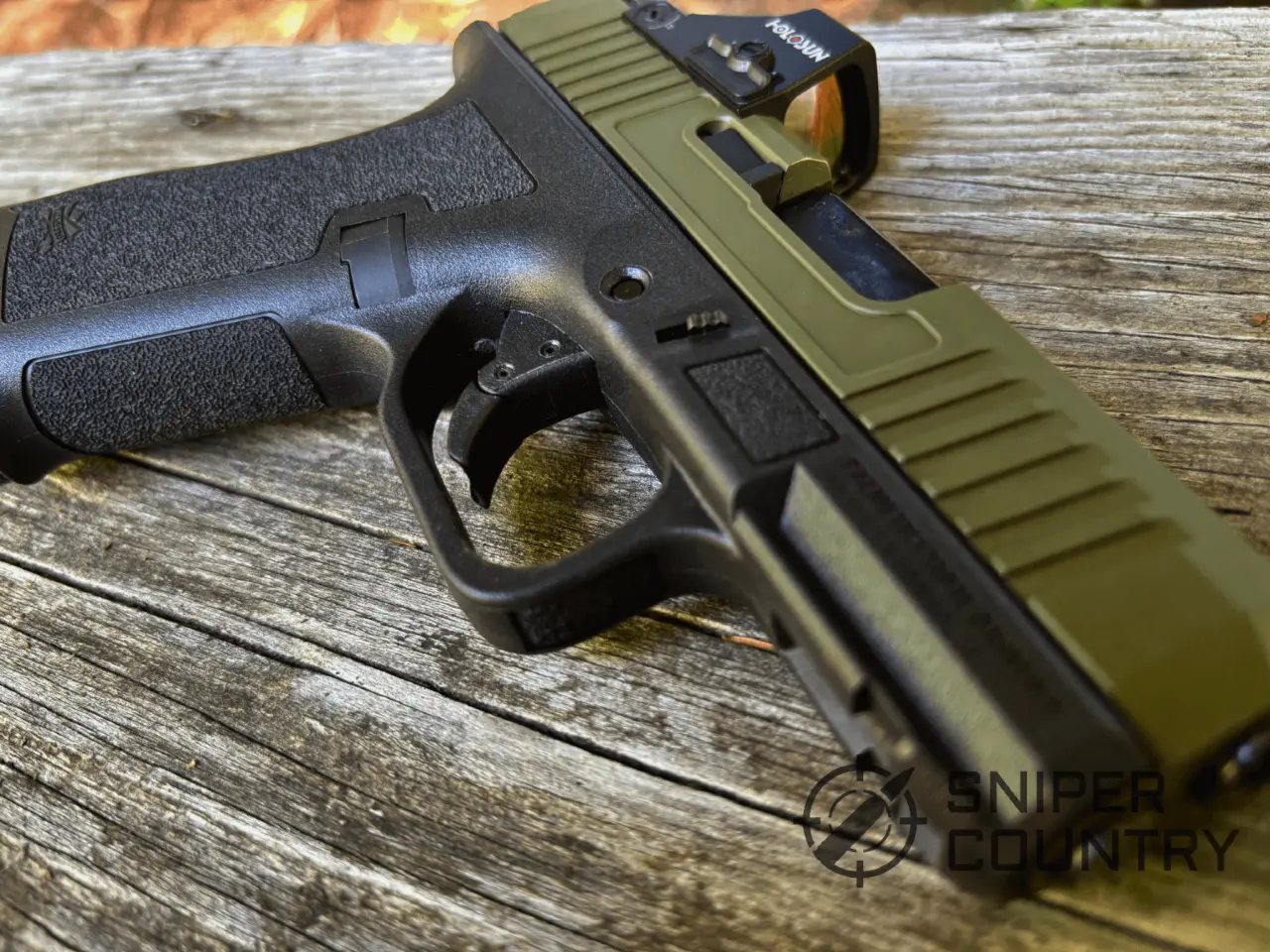
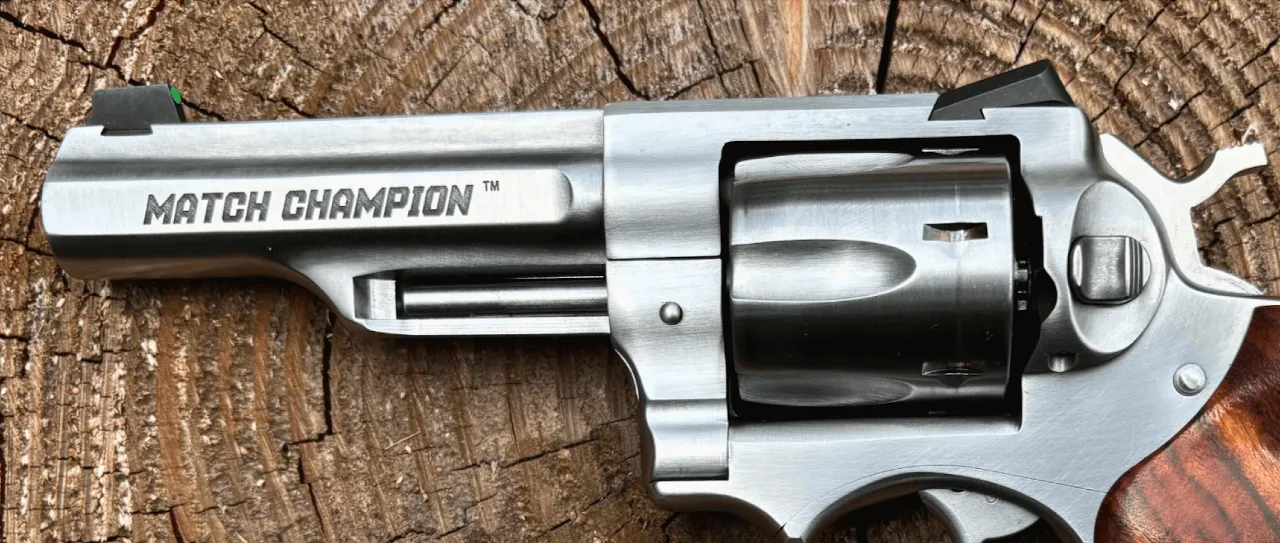



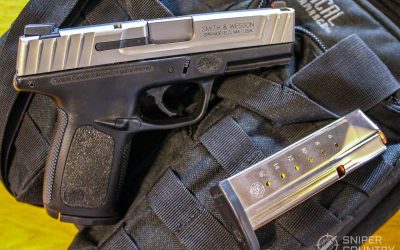
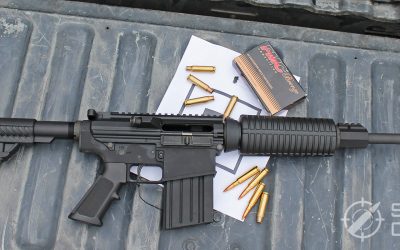


![9mm Glock Models [Ultimate Guide]](https://snipercountry.com/wp-content/uploads/2018/10/Glock-17-vs-Glock-19-vs-Glock-26-vs-Glock-41-vs-Glock-43-WM-400x250.jpg)
![Handgun Caliber Chart [2025 Ultimate Guide]](https://snipercountry.com/wp-content/uploads/2018/10/Handgun-Caliber-Comparison-400x250.jpg)
![Rifle Calibers [Ultimate Guide]](https://snipercountry.com/wp-content/uploads/2018/12/Header-1900-400x250.jpg)



